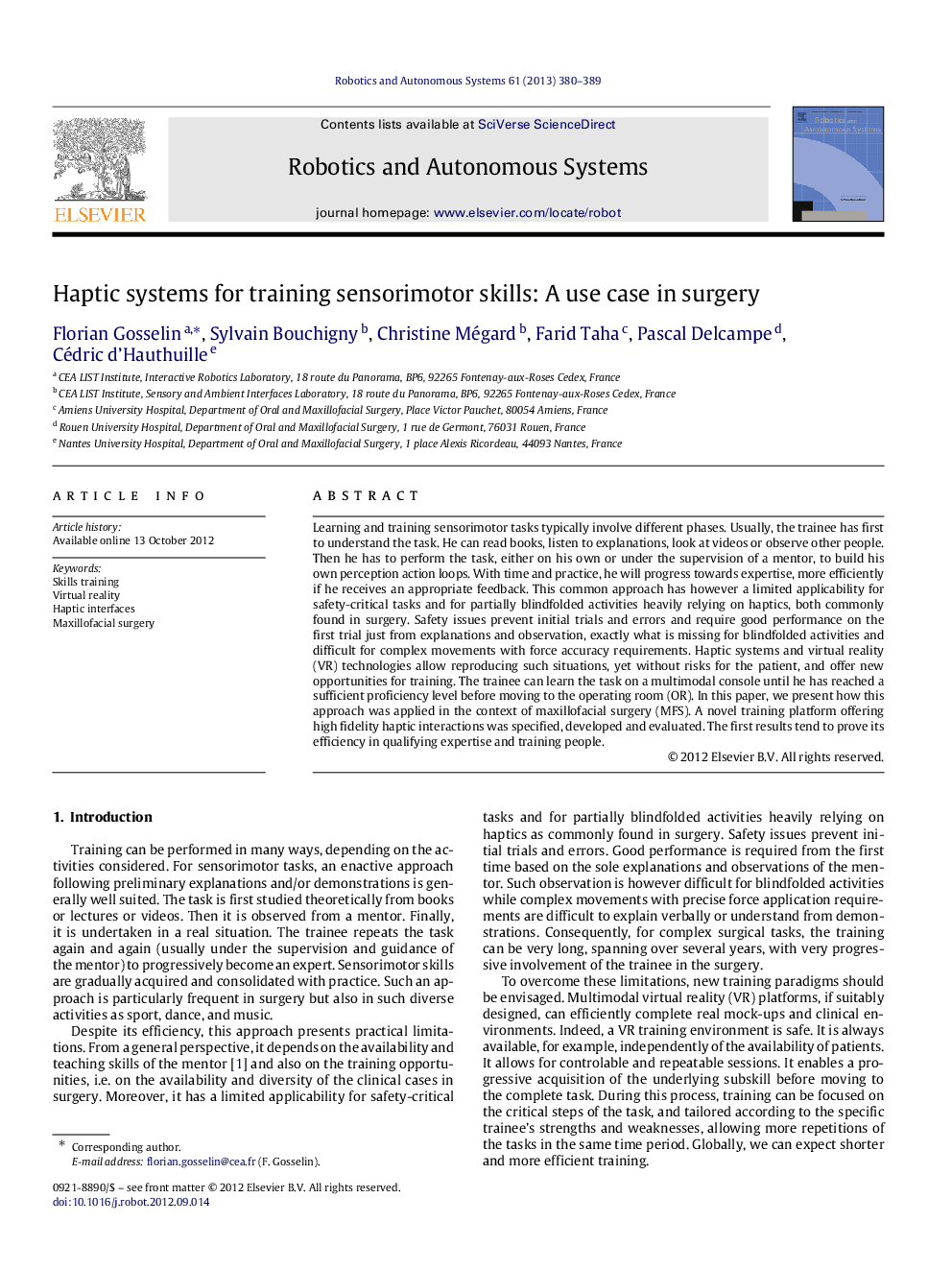| Article ID | Journal | Published Year | Pages | File Type |
|---|---|---|---|---|
| 413110 | Robotics and Autonomous Systems | 2013 | 10 Pages |
Learning and training sensorimotor tasks typically involve different phases. Usually, the trainee has first to understand the task. He can read books, listen to explanations, look at videos or observe other people. Then he has to perform the task, either on his own or under the supervision of a mentor, to build his own perception action loops. With time and practice, he will progress towards expertise, more efficiently if he receives an appropriate feedback. This common approach has however a limited applicability for safety-critical tasks and for partially blindfolded activities heavily relying on haptics, both commonly found in surgery. Safety issues prevent initial trials and errors and require good performance on the first trial just from explanations and observation, exactly what is missing for blindfolded activities and difficult for complex movements with force accuracy requirements. Haptic systems and virtual reality (VR) technologies allow reproducing such situations, yet without risks for the patient, and offer new opportunities for training. The trainee can learn the task on a multimodal console until he has reached a sufficient proficiency level before moving to the operating room (OR). In this paper, we present how this approach was applied in the context of maxillofacial surgery (MFS). A novel training platform offering high fidelity haptic interactions was specified, developed and evaluated. The first results tend to prove its efficiency in qualifying expertise and training people.
► A multimodal VR platform was developed for training maxillofacial surgery tasks. ► The platform integrates a novel high performance force and tactile haptic interface. ► The task was carefully studied to extract the key underlying skills. ► The first results tend to indicate that sensorimotor skills can be acquired in VR.
